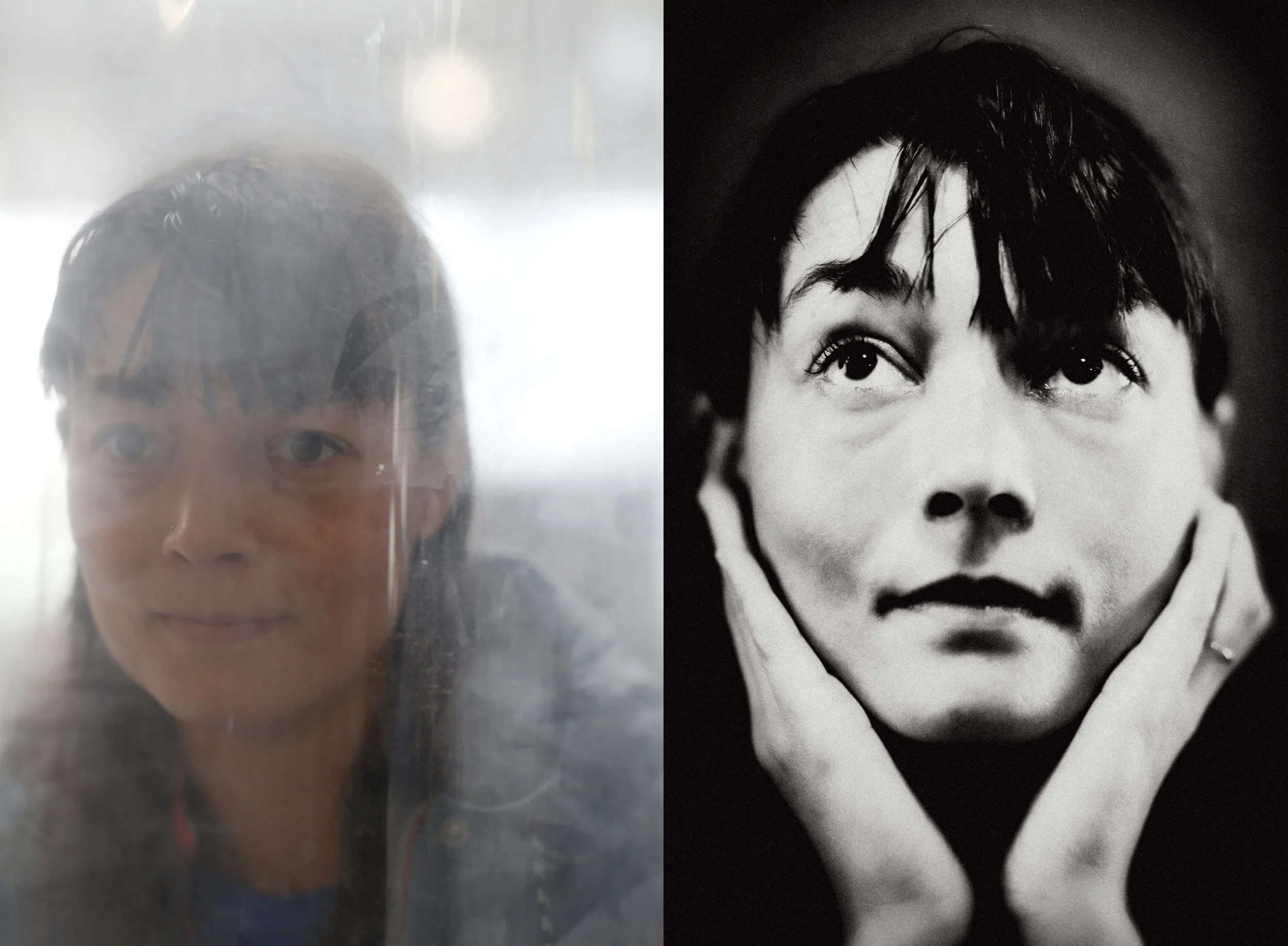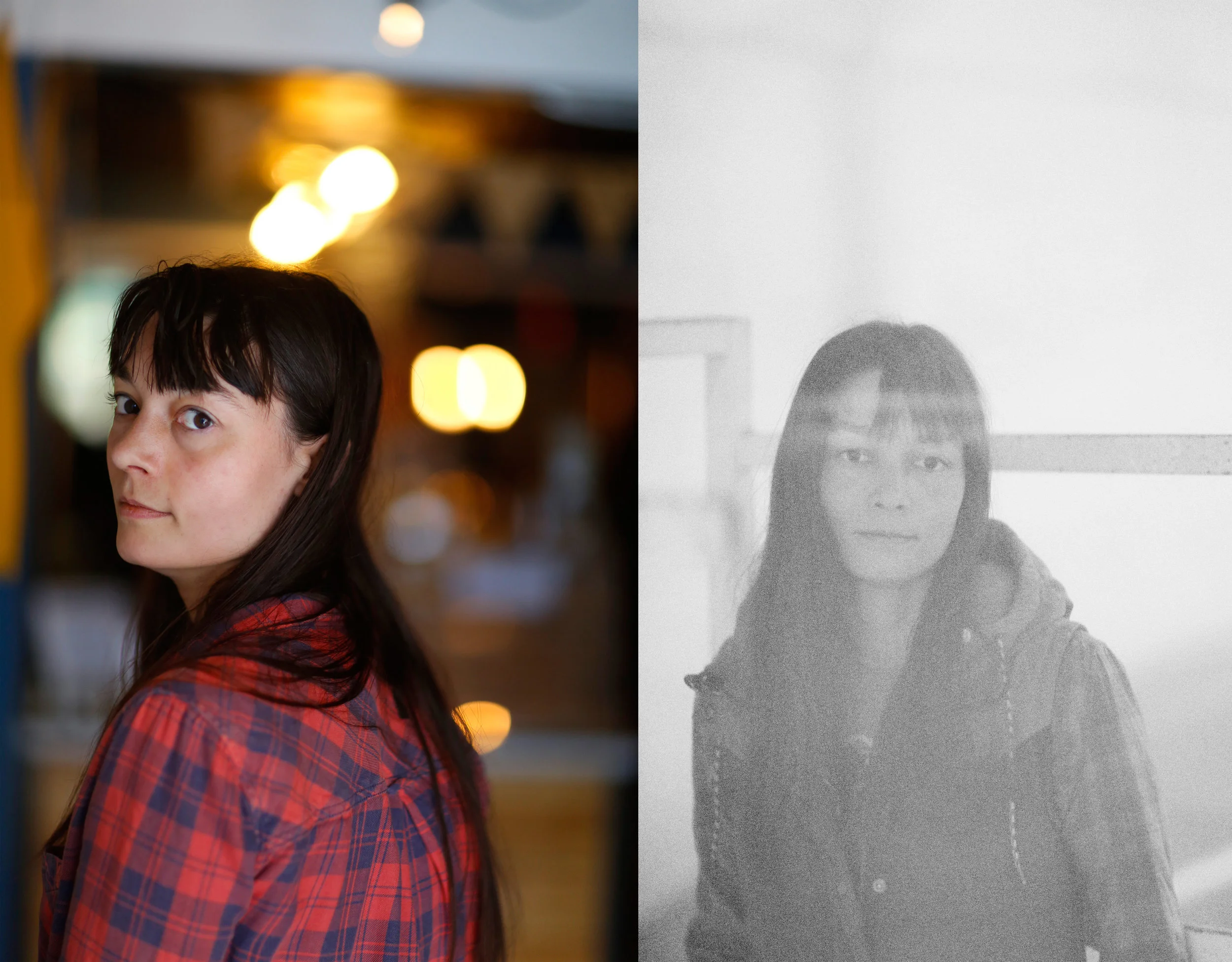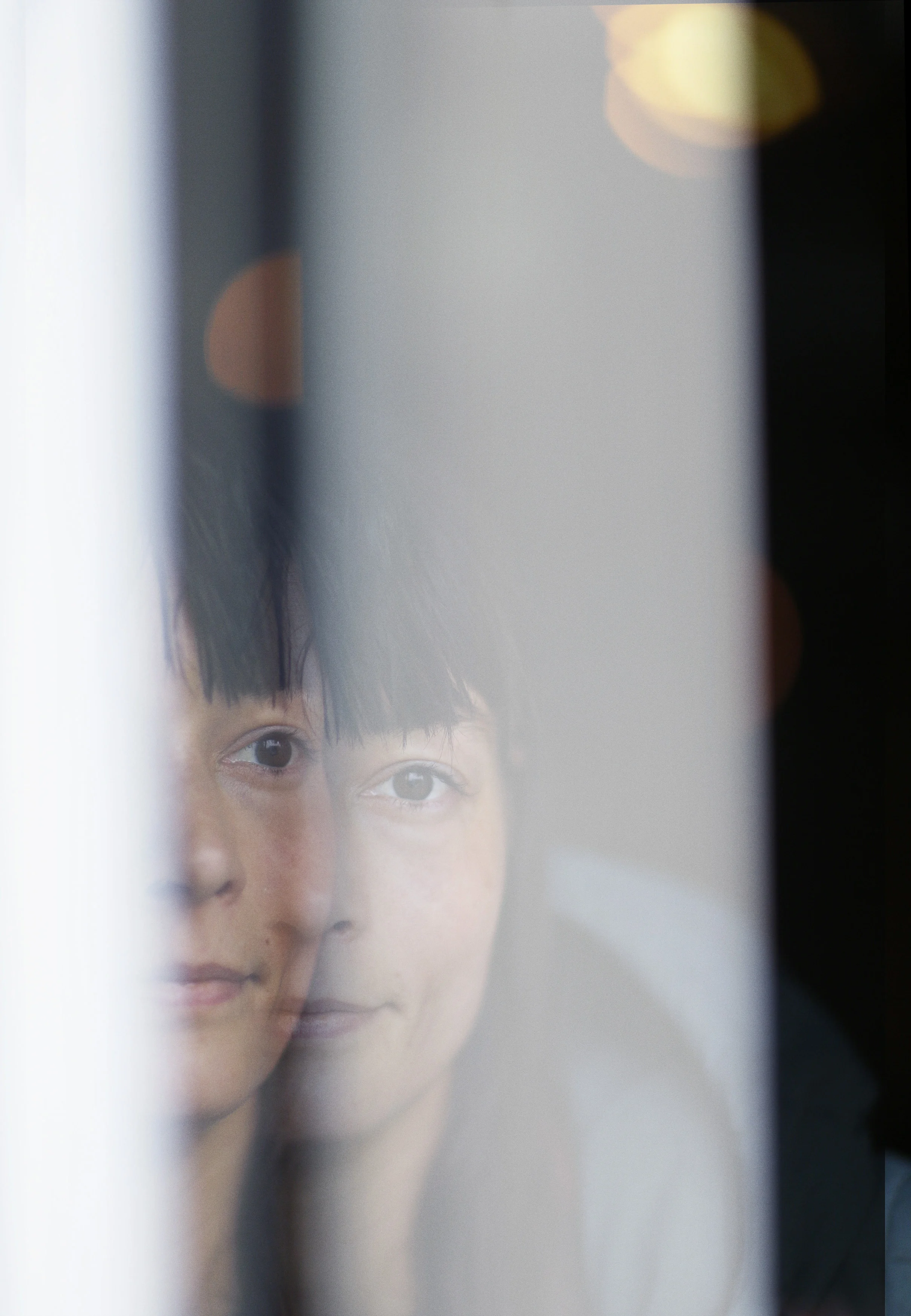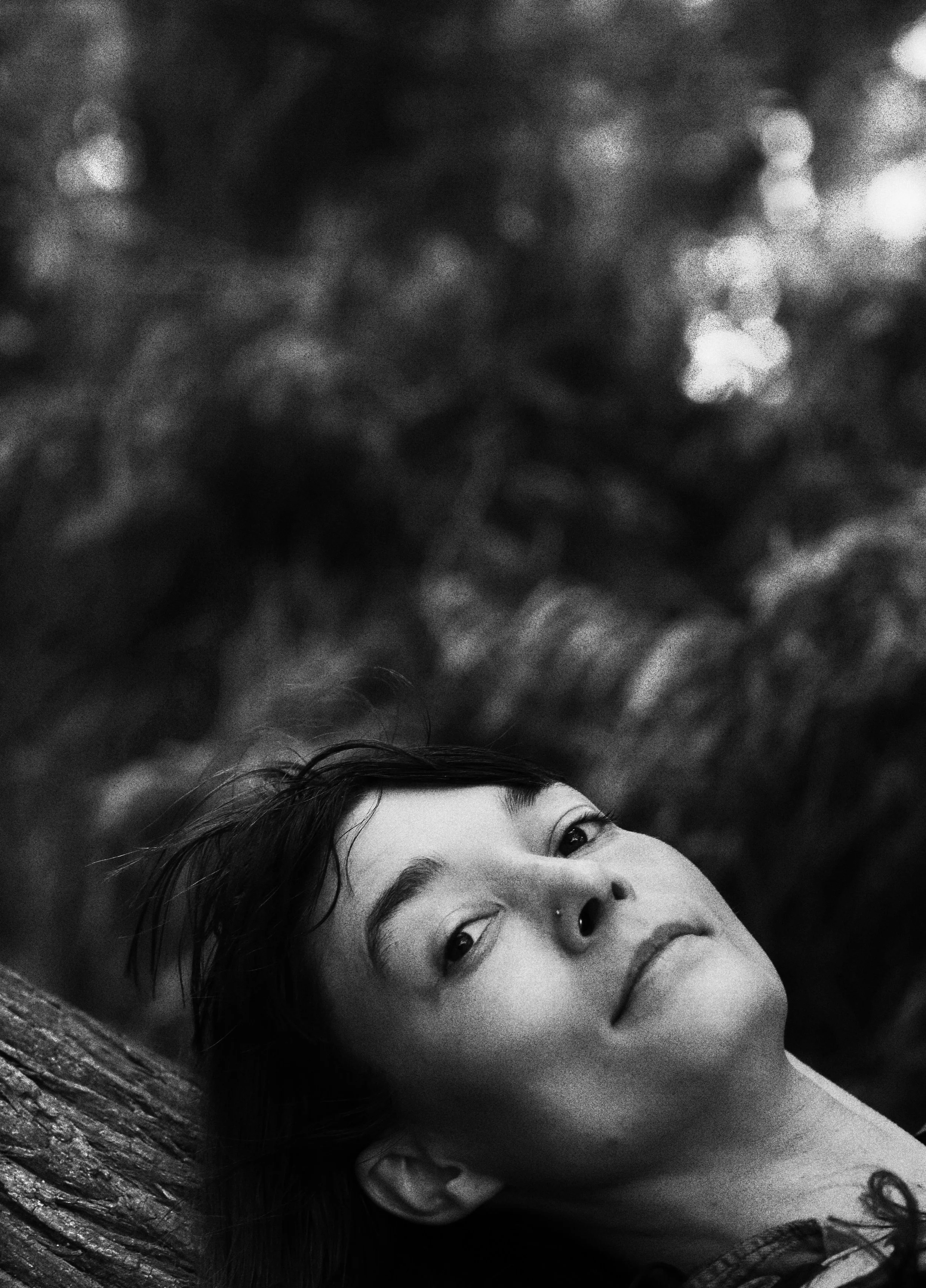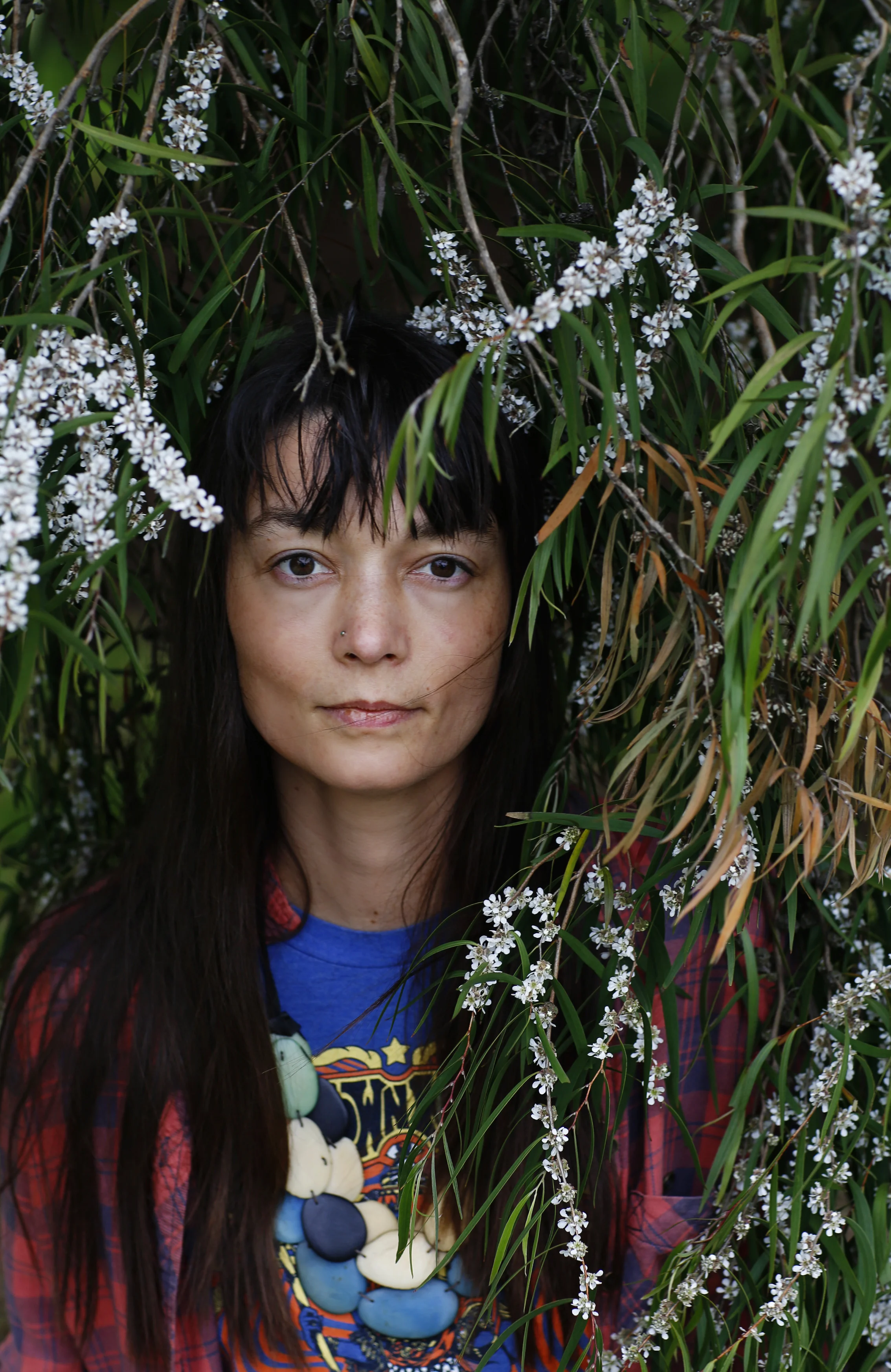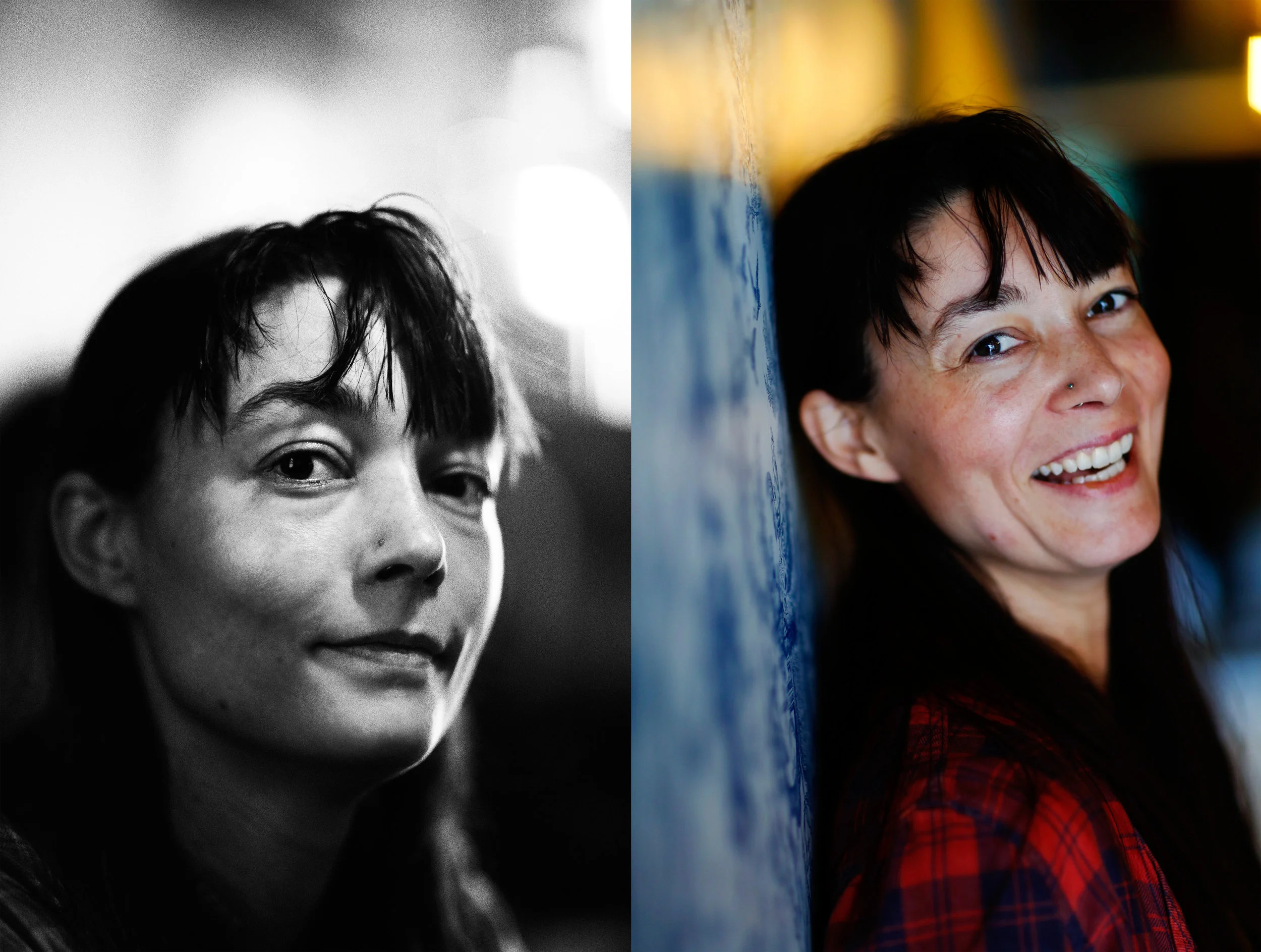Singer, Producer, Creator, electronics and Sound Engineer, Artist, San Francisco
I was especially excited to meet Carmen Caruso, the founder and a lead vocalist of psychedelic rock band Agouti after I listened to her single, Summertime. It was recorded in Caruso's basement, and is a definition of psychedelic:
"...The world around us is shutting down
So we headed to the forest out of town
There before the morning light
You floated off the mountain side, yeah
On the edge of forever..."
The single was created among analog keyboards, old tape recorders, and home-made organ cabinets. I am so inspired to read about multiple talents at work here: Carmen is a manager, writer, creator, plays bass, mixes records, records vocals, coordinates schedules as well as negotiates deals, registers trademarks, and keeps accounting. And oh, she screen-prints the band's t-shirts at home too. This feature is an astonishing reality check of what goes into starting, spearheading, investing energy, time and money into a band. Incredibly honest, raw at times, and very real feature of the leader of the band (and much much more than that), Carmen Caruso.
1. Name
Carmen Pedersen Caruso.
2. Where is your hometown?
I grew up in Seattle, Washington. In 2004, I moved to the San Francisco Bay Area and have pretty much been living here ever since.
3. What is your profession/career/title/self-label/designation?
I’m a music producer, songwriter/composer, audio engineer, performer, and sound designer.
4. What was the journey like to get where you are (in life and career wise)? What are some accomplishments you’re most proud of?
Starting at the age of 5, my long path in music has been one filled with growth. I started out singing, playing piano and saxophone. I soon learned that I also really loved working in the recording studio and producing music. I began writing music on MIDI programs in high school. In college, I began recording music in my bedroom and taking courses in audio engineering. I interned at various recording studios in Seattle and the Bay Area, such as Jack Straw Productions, The Plant and Different Fur. I found it difficult to find paid work in music, however, and kind of reached an impasse on what to do next.
During this time in my early 20s, I was also surrounded by a lot of problems. I was in a series of abusive relationships, which led me down a path of alcoholism, drug addiction, and depression. I developed an eating disorder and my weight dropped significantly. I also was sexually assaulted twice by my boyfriend. At the time, I didn’t even realize that it was rape. I spiraled into feelings of confusion, anger, and shame. There were a few years where I stopped doing music altogether and just lived day to day. It was my love of music and the support of my friends that really helped me face my demons and find a better path.
My life really changed when I decided to save up for a year to apply to graduate school. I was living on a boat in Berkeley at the time, scraping by. When I found out that I got into my top school, it gave me the confidence I needed. At Dartmouth College, I was able to meet and work with many amazing composers, performers and pioneers in computer music, such as Jon Appleton, Joan LaBarbara, Amy X Neuberg, Larry Polansky, and Max Matthews (for whom Max/MSP was named for). I also designed and built my own instrument controller, which a professor dubbed “The Carmenizor”. I used it to perform my thesis composition through my own Max/MSP software interface. To promote the performance, one of my pieces was featured on NPR. After graduating, I premiered another piece at the International Computer Music Conference in Belfast, Ireland.
When I returned to San Francisco, I started getting more heavily involved in the music scene. I co-founded and led a band called Odd Owl. For the first time, I learned how to effectively run and operate a band. I discovered how to talk to bookers (it’s all about the numbers) and how to book a tour without losing money (bring your own food, find friends with couches, and plan out cheap gas stations!). As a band leader, I found out Doodle and Google calendar are lifesavers when managing four different people’s schedules. In order to earn more money from merchandising to support all of our band expenses, my illustrator cousin Trillian Spencer showed me how to screenprint my own t-shirts at home. I learned how to use different inks, expose a screen, and cure shirts without a flash dryer. I picked up some CSS and HTML and designed our own website (Squarespace is a real godsend). My husband taught me basic masking and layering techniques in Photoshop so I could make show posters, color animation for video, polish photos and create branding images. I figured out how to edit promo videos using Final Cut Pro, which is surprisingly similar to audio editing. I ran a successful Kickstarter campaign by researching other bands’ campaigns. I learned how to work a crowd on stage, and to play two different parts and sing at the same time. And I also started to focus more on mixing records, learning on my own and from other engineers about the ins and outs of EQ and compression, splicing and editing overdubs, and how to bring certains parts of an arrangement in and out to create an interesting sonic field. I would often spend hours and hours working on the same song, listening and revising it. One of our songs I think I remixed 24 times!
After Odd Owl broke up, I decided to start my own psychedelic rock project, Agouti. With Agouti, I really wanted to shape and control each aspect of the sound, so I started building a professional space to produce and record my music. During the last couple of years, my husband and I renovated and soundproofed my basement studio. I learned how to frame walls, build floating ceilings and floors, install electrical wiring, and turn a paint closet into an isolation booth. I also decided I wanted to work more with older vintage equipment to get the sound that I was after, but I didn’t want to pay an amp tech every time something broke (which happens quite often with older gear). So I taught myself how to fix up and build analog equipment through online forums, videos, and a lot trial and error. I can replace electrical components, read a schematic and use a signal tracer to find issues with failing circuits, to the point where my friends often come to me to fix their gear. I cobbled together a Leslie speaker from parts off of Ebay, built some ribbon mics, a fuzz pedal and a plate reverb. The plate reverb turned out to be quite a challenge. It took several iterations before I was able to get it to sound right!
The last few years I’ve been writing songs and arrangements for Agouti’s first album, hashing out changes with my bandmates, recording parts with a 4-track reel to reel tape recorder, and experimenting and tweaking the mixes for months in my studio. And so far, all of that hard work has been paying off. We’ve played at Noise Pop and SXSW, and my music has been featured on KQED, KUSF, SF Weekly, and The Bay Bridged to name a few.
Besides my bands, I do a lot of work within the music community here in SF. I’ve helped coordinate events for NOW! Fest and Balanced Breakfast, one of our wonderful music communities here in the city. Balanced Breakfast is now an international organization, and I’m happy to have been a part in its growth. I am a freelance live sound engineer for venues and organizations in San Francisco and Oakland, and I’ve put on shows in unusual places such as parks, churches and sidewalks. I’m a music composer and sound designer, and have worked for various game companies in the Bay Area such as Zip Zap Play (now Popcap/EA), Picture Trail, and Tree Gem Games. I’ve recorded, mixed, and produced artists such as Emily Afton, Fellow Wolf, and The Fell Swoop. As I continue to work in the music industry, I love that there’s always something new to learn. Currently, I’m discovering more about music publishing and licensing as I start to navigate band contracts.
5. What did you study in school?
I studied audio engineering and production, vocal performance, composition and sound design, and electro-acoustic music, which is essentially a degree that combines music and technology.
6. How is your life different from what you pictured at 20?
I didn’t think much about my future when I was 20. I’m really happy with where I am now, but it’s a very different life than I could have ever imagined.
7. What was your biggest disappointment and plan to overcome it?
As a musician, you experience a lot of disappointment. There are many promises that never pan out, many leads that don’t come through. I’ve played to thousands, and I’ve played to a room of four people. Once I sent out over 100 individualized emails to various press outlets and got nowhere. However, I continue to use my failures as learning tools instead of barriers.
One of the ways I try to overcome failure is by recognizing my strengths and weaknesses and finding competent team members who excel in those areas where I don’t. I also really believe I’m doing what I’m meant to do in this life. I’ve been making music for over 30 years, and I don’t give up easily.
8. Advice for other women?
Keep your ear to the ground, ask questions and learn all that you can from people who you respect. But also be confident in what you already know. Don’t be afraid to speak up and be a leader, or take risks when you don’t have all the answers.
9. Knowing what we know now in current political climate, can women be "all that we can be" in today's world? What is the way forward, as you see it for "feminist values”?
I will say I don’t know what women in other fields experience, I only have my own experiences. My field, the field of audio engineering, is 95% male. While I don’t experience overt sexism at work, one of the things I do experience on a regular basis is alienation. I often find that even though I have over 15 years of experience as an audio engineer, people will talk to me in a dumbed down way. Starting with the assumption “you don’t know what I’m talking about” can make a person feel excluded from the conversation before they have a chance to contribute. This is especially frustrating when the person talking to me is less experienced and giving me information that I know is incorrect. As a result, I often find I overshare my knowledge when first meeting people, in order to try and avoid feeling more alienated. I think moving forward, we all need to reassess why we start out with the assumption that a woman is not knowledgeable in her own field. By treating someone as a peer instead of a novice, we can allow women to feel more comfortable contributing to the conversation. Feeling included and respected is something that is important to everyone, male and female.
10. Where in the world do you feel “tallest” (i.e. where is your happy place)?
I feel tallest on a stage, connecting to an audience with my music. But my happy place would be in my garden with my guinea pigs on a warm afternoon.
11. What extracurricular activities/hobbies are you most proud of? Why?
I ran and completed the San Francisco Marathon in under 5 hours which was a personal goal of mine. When I was younger, I actually failed PE, so to me that was a big achievement.
12. What do you want to be when you grow up? Future goals/challenges?
I hope I never grow up! I think it’s important to keep that child inside of you alive. I do have several goals that I would like to accomplish in my lifetime though. As a producer, I would like to work on nationally acclaimed record. As an artist, I would like to tour the world and play major festivals. I would also like to design my own electronic circuit, like a pedal or an amp.
13. What fears are you still hoping to overcome?
Because I have been sexually assaulted, I currently struggle with PTSD. It is not always easy to deal with as I continue to find different ways to heal. But I am lucky to have a very supportive husband as I work through it.
14. Anything you'd do differently if you had another go at life?
It’s hard to say. I have always tried to follow my dreams and pursue a life that makes me happy. I try to live in the present. I wish I had figured my life out a little bit sooner, but then again, my negative experiences in life have also helped make me the strong person I am today.
15. What inspires you?
My husband Josh. He is my number one fan, always there to lend his support or constructive feedback. I don’t think I’d be where I am today without him.
16. What are you hopeful about?
I’m hopeful about the reception of Agouti’s new LP, Nodes. I’m really proud of the music that I’ve created. I am honored to have my mixes mastered by legend Greg Calbi. I’m also grateful for my talented bandmates, David Rabkin, Dakota Salazar, and Leanne Kelly, who have helped bring my songs to life.
17. What are some ingredients to a good life?
Find work that you’re passionate about, live with people that you love and laugh with, learn to let go of negative emotions, push yourself but don’t forget to set aside time for play.
18. What advice would you give your 14-year-old self?
Don’t be afraid to set healthy boundaries for yourself. It’s OK to say no. Say goodbye to toxic people in your life. There are so many wonderful people out there to spend time with.
19. What are you reading now? (what books do you gift most and what are your favourite reads?)
These days I’m usually reading electronics manuals and schematics. But when I’m not doing work, I love to sit down with a historical fiction novel like “The Far Pavillions” or “Pillars of the Earth”, or Japanese manga, especially anything by Tezuka. I also recently enjoyed David Bryne’s “How Music Works”.
20. Who is a WOW Woman in your world who inspires you and why? Can you nominate three women you know who perfectly fit WOW WOMAN description?
My friend Molly McKeown. She is a metal worker who produces some amazing work in a field that is even less represented by women than my own. My bandmate, Leanne Kelly, who also runs her own band New Spell and also wears many different hats. And Lyz Luke and Piper Payne, who are helping to create a state of the art vinyl pressing plant in Oakland right now.
21. Where can others find you/your work (links to websites, blogs, etc.)?
My band Agouti’s website is www.agoutiband.com. I also have a personal website for my audio production work at www.carmencaruso.com.



